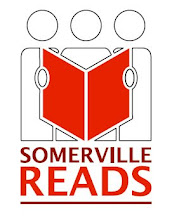One of the more poignant passages in
The Namesake occurs in Chapter 3, which describes Ashima and Ashoke's adjustments to life in the college town just outside Boston where they live, and where they are raising their two children, Gogol and Sonia. It's a touching, beautiful evocation of the way immigrants become, to a degree, Americanized, yet retain much of their own culture, flavoring the rituals and customs of American life with something all their own. And it also describes the inevitable gulf I've mentioned before that is growing between these Bengalis and their American children.
Their garage, like every other, contains shovels and pruning shears and a shed. They purchase a barbecue for tandoori on the porch in summer. Each step, each acquisition, no matter how small, involves deliberation, consultation with Bengali friends. Was there a difference between a plastic rake and a metal one? Which was preferable, a live Christmas tree or an artificial one? They learn to roast turkeys, albeit rubbed with garlic and cumin and cayenne, at Thanksgiving, to nail a wreath to their door in December, to wrap woolen scarves around snowmen, to color boiled eggs violet and pink at Easter and hide them around the house. For the sake of Sonia and Gogol they celebrate, with progressively increasing fanfare, the birth of Christ, an event the children look forward to far more than the worship of Durga and Saraswati. During pujos, scheduled for convenience on two Saturdays a year, Gogol and Sonia are dragged to a high school or a Knights of Columbus hall overtaken by Bengalis, where they are required to throw marigold petals at a cardboard effigy of a goddess and eat bland vegetarian food. It can't compare to Christmas, when they hang stockings on the fireplace mantel, and set out cookies and milk for Santa Claus, and receive heaps of presents, and stay home from school....In the supermarket they let Gogol fill the cart with items that he and Sonia, but not they, consume: individually wrapped slices of cheese, mayonnaise, tuna fish, hot dogs.....At his [Gogol's] insistence, she [Ashima] concedes and makes him an American dinner once a week as a treat, Shake n' Bake chicken or Hamburger Helper prepared with ground lamb...And this passage slays me:
When Gogol is in third grade, they send him to Bengali language and culture classes every other Saturday, held in the home of one of their friends. For when Ashima and Ashoke close their eyes it never fails to unsettle them, that their children sound just like Americans, conversing expertly in a language that still at times confounds them, in accents they are accustomed not to trust.Lahiri captures exactly how Ashima and Ashoke feel in their faltering steps to lead American lives, and yet expresses how much they will always feel Bengali. To must of us, purchasing a rake is a no-brainer. Not for Ashoke and Ashima:
Each step, each acquisition, no matter how small, involves deliberation, consultation with Bengali friends. This is all new to them. Even one of the most trivial acts of suburban life is a small step into the unknown for them, and it's very telling that they will ask only
Bengali friends what they should do.
They don't trust their WASP friends enough to ask them about even such simple matters—if they have any WASP friends, that is.
And they adopt even some of the most bizarre North American customs:
They learn...to nail a wreath to their door in December, to wrap woolen scarves around snowmen, to color boiled eggs violet and pink at Easter and hide them around the house... Can you imagine how surreal it must feel to a pair of Bengalis to be doing things like this? They're from a tropical climate, and now they're making snowmen—and putting clothes on them. And even native-born Americans should consider coloring eggs and hiding them strange, because let's face it, it's a weird thing to do.
And I love the emphasis on food in this passage, illustrating how profound a role food plays in expressing national identity. For example, the Gangulis give in to the American custom of roasting a turkey for Thanksgiving, but they add a Bengali twist—garlic, cumin and cayenne. I've never eaten a turkey roasted with garlic, cumin and cayenne, but it sounds
delicious. Sadly for Ashima and Ashoke, their children have an unabashed preference for American food at its processed worst: individually wrapped slices of cheese, hot dogs, Hamburger Helper.
And then there's the tinge of sadness about this passage. Ashima and Ashoke try to maintain their culture in America, but in so many ways they're failing. Instead of the brightly-colored statues of Saraswati that are honored in the pujas (or pujos) back in Calcutta, the Gangulis have to make do with a cardboard cutout. I've read that in India children think the pujas for Saraswati and Durga are fun, maybe even the biggest event of the year, but Gogol and Sonia prefer Christmas. And most telling of all, Ashima and Ashoke feel the need to enroll Gogol in lessons
in their native language:
when Ashima and Ashoke close their eyes it never fails to unsettle them, that their children sound just like Americans, conversing expertly in a language that still at times confounds them, in accents they are accustomed not to trust.In so many ways, their children are strangers to them.


















